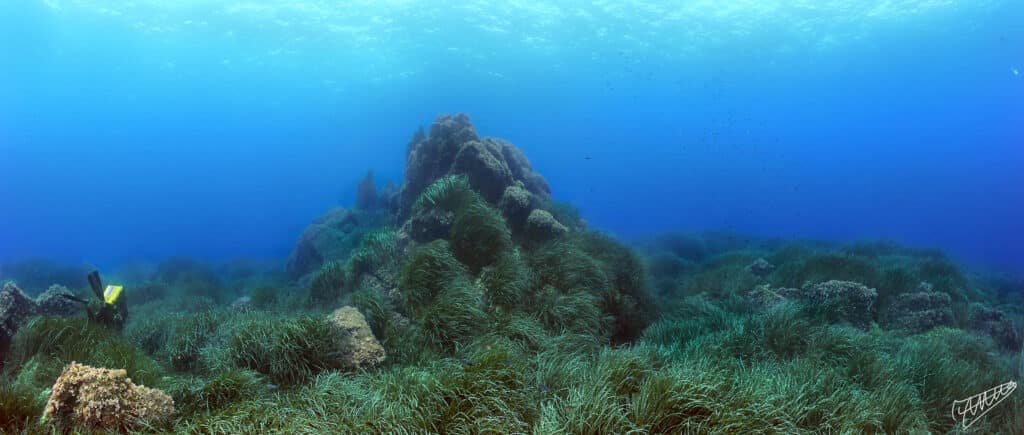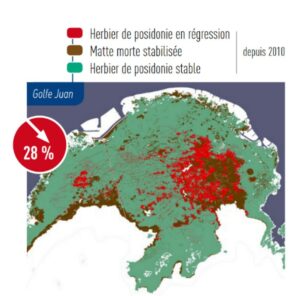POSIDONIA PRESERVATION: THE SOURCES OF AN EFFECTIVE COLLABORATION #15

In recent years, collaboration between a private structure (Andromède Océanologie), a public institution (the Water Agency) and State services has enabled significant progress to be made in four areas – knowledge, environmental monitoring, regulations and controls at sea – to ultimately reduce the impact on Posidonia meadows. At the basis of this collective success, we note the importance of having factual and recent data and the need to assert a strong ambition for the protection of the Mediterranean marine environment.
Knowledge and environmental monitoring:The anchoring of boats is responsible for significant physical damage to sensitive marine habitats such as Posidonia meadows (see video ).
To prove it, a work of localization and quantification of the moorings and their impacts was carried out from the AIS (Automatic Identification System) data. This analysis provided the State with solid arguments to legislate around the pressure of mooring.

Traces of anchoring in a seagrass meadow (scars revealing the dead matte): left on an orthophotograph, center on a sonar image, right on the mapping of marine biocenoses. @Andromeda Oceanology

Regulations and controls at sea:
The Maritime Prefect was able to listen to these arguments, which convinced him of the importance of protecting Posidonia meadows. In line with his missions and competences related to the protection of the Mediterranean and the management of maritime uses, he reacted by legislating on the basis of the transport code and by encouraging regional actors to contribute to the reduction of this anchoring pressure.
Fifteen decrees have been issued, including recently:
– Order n°155/2016, which concerns large vessels (recreational vessels over 80 m or other vessels over 45 m) ;
– Order No. 123/2019, which implements a change in the regulation of anchoring by prohibiting the anchoring of vessels over 24 m in the Posidonia meadow.
The Maritime Prefecture has undertaken a real approach to raise awareness of coastal stakeholders, information and explanation of the merits.
The rapid and coordinated action of the Mediterranean Customs Coast Guard in control operations at sea, as well as the involvement of the Maritime Court of Marseilles, have completed this new system of protection of the meadows by making effective the controls at sea and efficient the legal procedure.
Julie DETER, Andromède Océanologie and Pierre BOISSERY, Agence de l’eau Rhône Méditerranée Corse


